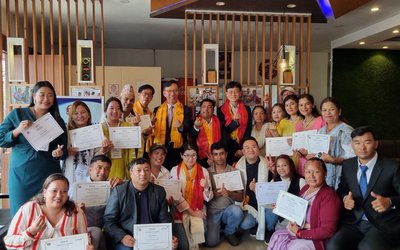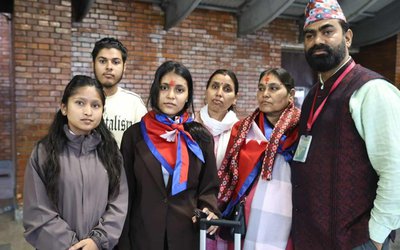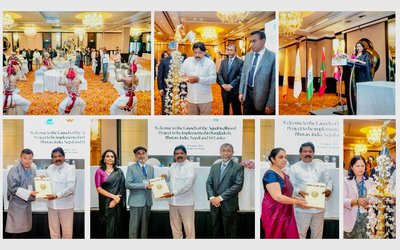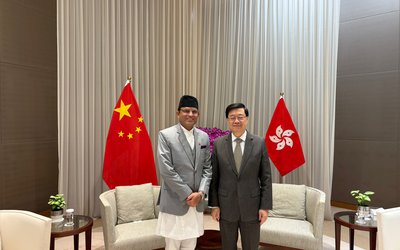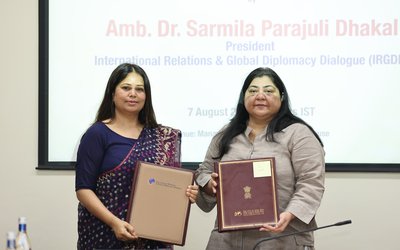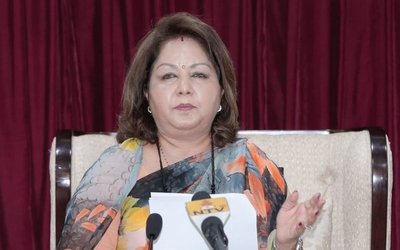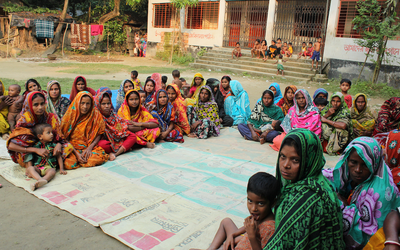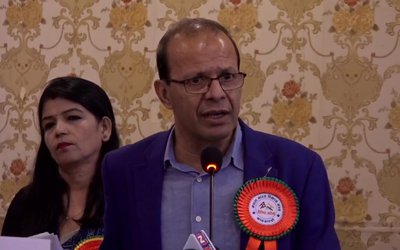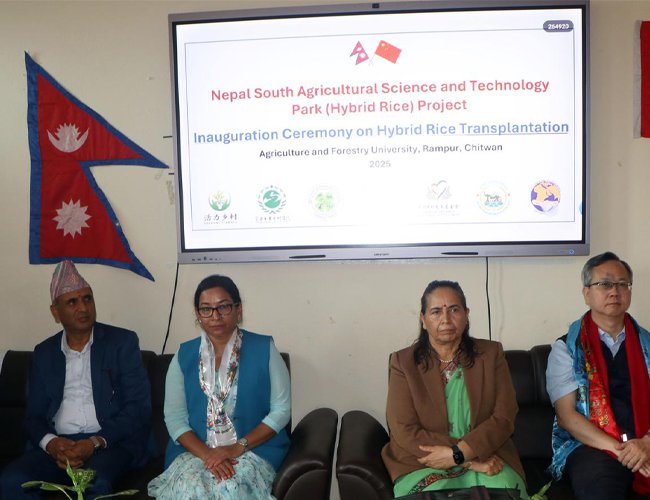
A hybrid rice plantation program has been conducted at the Agriculture and Forestry University in Rampur with Chinese cooperation. The program involves the planting of 37 varieties of hybrid rice developed by the Chongqing Academy of Agricultural Sciences in China for testing purposes.
The plantation was carried out in the presence of Chinese Ambassador to Nepal, Chen Song. Alongside the Chinese varieties, one Nepali-developed variety and eight commonly cultivated varieties were also planted. For each variety, 300 grams of seed were planted within the university campus.
Speaking at the event organized prior to the plantation, Bharatpur Metropolitan City Mayor Renu Dahal stated that this important initiative materialized based on an agreement reached during the visit of then-Prime Minister Pushpa Kamal Dahal ‘Prachanda’ to China. She mentioned that the project would serve as a milestone for Bharatpur Metropolitan City and the country as a whole. Emphasizing that Chitwan and Jhapa are leading districts in rice production in Nepal, she said that expanding high-yielding hybrid varieties across the country could help boost production.
At the event, Ambassador Song expressed that it was a matter of pride for China to test and begin rice production in Nepal. He stated that this hybrid rice seed, a result of 70 years of achievement by China, was gifted to Nepal. He expressed his belief that this project would help fulfill Nepal’s aspirations in agricultural production, saying, “In the coming years, this support will contribute to increasing rice production in Nepal.” He added that China was sharing with Nepal the fruits of its hard-earned success.
Vice-Chancellor of the Agriculture and Forestry University, Prof. Dr. Sharda Thapaliya, said that this project had succeeded due to the support from the Chinese government, Bharatpur Metropolitan City, various organizations, and experts. She believed that if the trials succeed, it would contribute to enhancing Nepal's rice production.
Speakers at the event included University Registrar Pushkar Bahadur Pal, Zhao Jiang, Country Director of the China Foundation for Rural Development, and Project Coordinator Raju Baral.
According to Baral, the hybrid rice varieties planted as trials will be cultivated in various parts of Nepal depending on their yield performance. Farmers are also being trained as part of this initiative. The university will study and compare the most commonly used varieties in Nepal with the Chinese hybrids to recommend the most suitable ones.
So far, only one hybrid rice variety — Hardinath Hybrid-1 — has been produced and used in Nepal, Baral noted. Farmers currently rely on imported hybrid varieties from abroad. — RSS
- K-Food (Korean Cuisine) Intensive Course successfully concluded in Kathmandu
- Aug 11, 2025
- Tanahun Hydro's Dam Construction Makes Satisfactory Progress
- Aug 11, 2025
- Mother and Sister of Bipin Joshi, Held Hostage by Hamas, Depart for Israel
- Aug 11, 2025
- Terrorist attacks on India are intolerable for Nepal: Leader Rijal
- Aug 11, 2025
- Large Numbers Of Devotees at Pashupatinath And Other Shiva Temples on the Last Monday of Shrawan
- Aug 11, 2025
